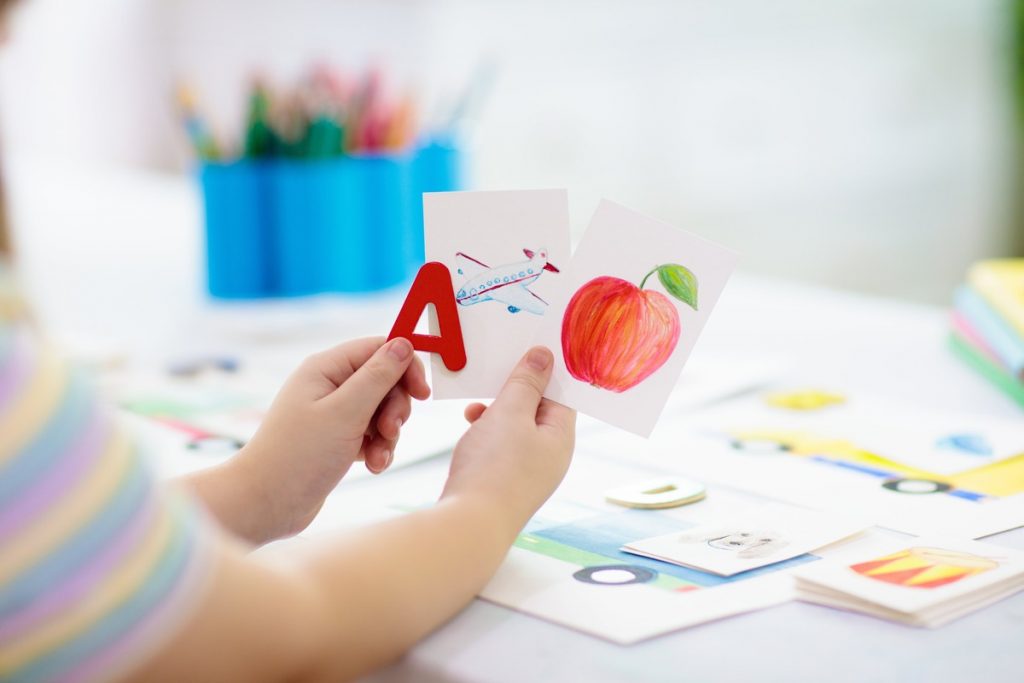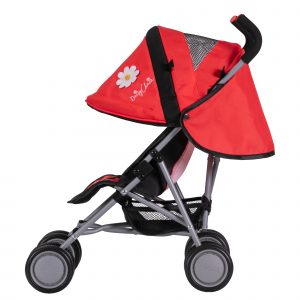Play is often associated with the fun parts of life, but it’s also a wonderful way to meet a child’s cognitive, emotional, and physical needs. From playing with dolls prams to exploring the great outdoors, there’s lots of ways a child will expand their development.
In this guide, we’re looking at all the parts that make play important in child development, children’s individual needs, and what you can do to help your little one.
Let’s get our thinking caps on and get to work.
What is child development?
Child development refers to the emotional, physical, thought, and language changes that happen throughout children’s lives from birth to early adulthood. As a child develops, their needs and behaviours change, enforcing independence and moving away from being dependent on adults.
Before reaching that point, it is up to guardians, parents, and teachers to encourage children’s development appropriately to meet children’s individual needs.
If there are any developmental issues, it is vital to pick them up as quickly as possible to prevent any developmental delays; that’s where early years providers observing children can help and provide further support.
Development is influenced by various factors, including genetics, environmental factors, learning ability, and events in prenatal life.
What does child development include?
Let’s explore the different skills children learn and conquer throughout their early years:
- Physical: This includes fine motor skills and how the body works as a whole.
- Sensory: Learning about the senses is a vital part of child development. Children need to know how to process different senses. Learn more with our useful guide – How Does Sensory Play Help Children’s Development?
- Social interaction: Working with others and building positive relationships with others around them give children the social skills to become active members of society.
- Personal control: Self-control means an individual child can identify and properly control their emotions.
- Cognition: Problem-solving and a child’s ability to learn and process new information.
- Language and speech: Children learn to communicate and process language through speaking and writing.
These basic developmental needs must be met for a child to reach their milestones. Observing their ability to master and learn these things will help identify if all their needs are being met by providing further support and learning tools.
Meeting milestones is not a prerequisite. However, it is a general indicator to show how a child is progressing compared to other kids the same age.
But if your child isn’t meeting a particular milestone, it doesn’t mean you should panic or start enforcing stricter rules to force them into developing faster. A gentle nudge can help but don’t force it.
If you start noticing delays, be aware and look at where you can help them with specific activities and play.
If that doesn’t work, then it would be best that a professional identifies if there are any developmental delays. Identifying these can help provide you with exact activities to strengthen your child’s skills.
How to meet children’s needs through play
There are a lot of ways to meet children’s individual needs, but how does play specifically help? Play can:
- Encourage curiosity
- Instil independence
- Improve self-esteem
- Promote equality
- Bring out confidence
- Increase social skills
- Improve interactions
- Help manoeuvre difficult situations
Discover a deeper look into how children learn through play with our guide.
-
 Daisy Chain Connect 5 in 1 Dolls Pram in Classic Pink£89.99
Daisy Chain Connect 5 in 1 Dolls Pram in Classic Pink£89.99 -
Product on sale
 Daisy Chain Little Zipp Dolls Pushchair in PoppyOriginal price was: £39.99.£24.99Current price is: £24.99.
Daisy Chain Little Zipp Dolls Pushchair in PoppyOriginal price was: £39.99.£24.99Current price is: £24.99. -
 Daisy Chain Zipp Zenith Dolls Pushchair in Twilight£139.99
Daisy Chain Zipp Zenith Dolls Pushchair in Twilight£139.99
Play and social development
A child’s social life grows with them, so developing social skills is vital to meeting a child’s need to be social. Being social means a child can learn to share and engage with others in a way that fulfils their needs.
Play is essential because if a child is more introverted, it can bring them out of their shell. If a child doesn’t want to play with others or becomes aggressive, these indicators show their social needs aren’t being met.
You should allow kids to play with others to develop their social skills; a classroom setting is perfect, with various games and social activities available.
Physical development and play
Play gives children the opportunity to develop their bodies physically, and they learn to improve their fine motor skills and fundamental movements.
Playing activities like skipping, balancing, and running help fulfil physical needs. These needs progress as children age, with some finding specific interests in sports and dance.
Children should be involved in movement classes from as early as two years old to help them strengthen physically.
Being physical can also let off some energy which is essential for little ones who may be slightly more energetic than others.
Learn more with our interesting guide – How Does Play Help Children’s Physical Development?
Play and intellectual development
Throughout a child’s early years, they learn to play in ways that stimulate their intellectual development.
Playing isn’t the same as sitting and learning; children become fully immersed in the learning process during play.
Some examples include:
- Playing with different shapes to learn about how they fit together
- Learning to count, songs and games
- Jigsaw puzzles
- Memory games
- Reading books
- Stacking blocks
- Cooking and baking (learning to measure and count)
The list goes on, but a lot happens when you incorporate play with something a child can learn, like a new skill.
Be prepared for many questions. As kids develop, it’s no longer about simply doing what you’re told but trying to find out why you need to do it. It’s not a disrespectful way; it is the natural process of learning and enquiring about all life’s lessons.
To learn more, discover our guide – How Does Play Help Children’s Intellectual Development?
Why meeting children’s individual needs is important
Now that we know the basics about learning needs and development, you should have a much better understanding of why it’s crucial to meet the needs of children as a whole. However, what’s more important is ensuring you meet the individual needs of children so nobody gets left behind or left out.
It is a simple fact of life that some children develop in certain areas faster than others, while other little ones might take a bit longer to learn the same concept. It doesn’t mean that there is anything wrong, but it does mean that you need to help the children that need some extra time a bit more.
Slow down and go at their pace
Think about it; if you’re sitting in a class and the teacher runs through the chapter on fractions, there may be a chance you don’t pick up on half the lesson because you keep going back, trying to remember what was said before.
It’s the same for developmental needs. Some kids need someone to slow down and go through it with them at their own pace. That doesn’t mean it’s a serious thing either. Playing a simple game once a day could help.
Have various play options
The same goes for kids that learn quickly. We can’t hold them back from wanting to discover and learn faster because that may hinder their developmental needs.
That’s why it’s crucial to have various play options available to support children and their individual needs.
Ensure correct guidance is there
There are some developmental milestones that early years providers will look out for, which is why having the proper guidance from a young age is vital.
If early years providers notice your child is developing slowly or differently, they will let you know, and you can go from there. We recommend you work closely with this person to get the proper guidance.
The good news? Most of the time, it simply means you need to implement some play that will support the needs that require more attention.
Suitable activities to learn through play
Here are some of the best ways to add play to the learning process:
- Play Dough: An excellent way to build up the muscles used for writing and a way to be creative while developing hand-eye coordination.
- Doll and character play: This develops a child’s social needs while allowing them to express their thoughts and feelings through a relatable character, helping with emotional development.
- Blocks and jigsaws: An excellent way for children to develop their spatial reasoning and problem-solving skills in a creative and fun way. It is fantastic for cognitive and social needs because they often play with other kids.
- Imaginative play: This is one of the best ways to get a child to build confidence and begin logical thinking. It can take a box or two, some toilet rolls, and anything else you can find in your home. Explore a deeper look into the topic with our guide what is imaginative play? Or delve into the benefits of imaginative play with help from Play Like Mum.
- Drawing and painting: This provides children with a creative outlet in a sensory way where they can express themselves freely. Plus, some tools get those finger muscles working when they begin writing.
- Dress-up and roleplay: This is brilliant for encouraging social interactions as children often roleplay together. Kids can also learn to make sense of the world in a way that makes sense to them. For some great roleplay ideas for kids, discover our handy guide.
- Sand: This is the perfect opportunity for kids to play while fulfilling their physical needs. They can develop their fine motor skills and build muscle while being creative.
Discover our blog for more information on creative play: Why is Creative Play Important for Children’s Development?
FAQ
How can play meet children’s individual needs?
Play provides a way for you to help fulfil social, physical, emotional, and cognitive needs in a fun way that children can understand.
Why is meeting individual needs important?
Meeting individual needs is vital to encourage children to want to play. Often, the child avoids things they don’t understand. Individual attention allows children to immerse themselves in the learning process entirely, and it can build confidence and give children a much better chance of need fulfilment.
How do you promote child development and learning?
There are plenty of ways you can encourage your child to learn. These can include providing them with prompts like toys or objects for imaginative play. Get them engaged with new and exciting activities that involve music, exercise, art and dance. It’s also important to spark conversation and get their brains thinking whilst gaining social skills.
Encourage play with help from Play Like Mum
Our fantastic selection of dolls prams and pushchairs here at Play Like Mum are the perfect way to aid your little one’s individual developmental needs. With a great range of colours, including blue dolls prams and pink dolls prams, there’s a toy for everyone.
Explore the full range at Play Like Mum, which makes the perfect pairing for your little one’s favourite interactive doll.
For more, read our other guides:




